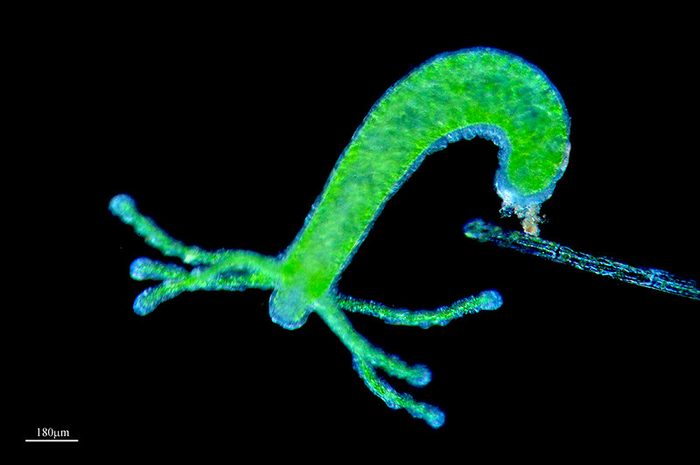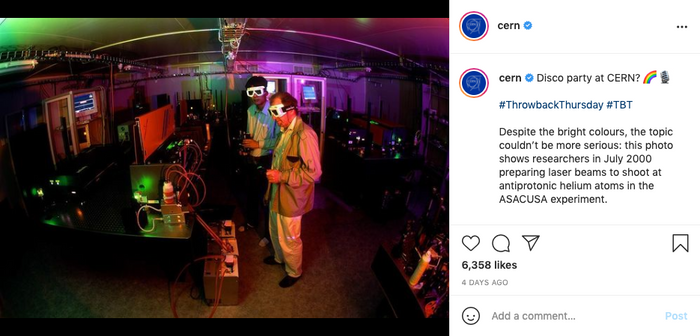Hello, this is Nicolas from Geneva; I’ll be covering for Achintya for the next three weeks. Today, we learn about the differences in the sustainable technologies used by start-ups in the global north and south.
Remaining in the start-up world, we learn about a Geneva-based fintech developing a new model of ethical payment.
And we turn our attention to the stars, as the Swiss government seeks to increase its funding of the construction of the world’s biggest radio-telescope. |
|
Science & Technology News
|
|
|
🌎 👨💻 North-South tech divide.
Technology has a massive role to play in meeting the 2030 deadline for achieving the United Nations’ Sustainable Development Goals (UN SDGs), says Julia Binder, head of Tech4Impact, an EPFL-sponsored platform promoting sustainable entrepreneurship. But technical solutions have to be adapted to the realities on the ground – especially in the global south.
Geneva Solutions (EN)
|
|
💸 When ethics pay off.
A Geneva-based fintech startup is developing a new online payment that does not only have lower-than-average transaction costs, but is also donating a third of its fees to social and community projects of the buyer’s choosing. Will the idea of this new so-called “ethical” coin take off?
Heidi.news (FR)
|
|
Here's what else is happening
|
|
Social media post of the day
|
|
|
🕺 Disco throwback.
CERN has posted a photo of what seems to be scientists partying in the early 2000s. What it really is, however, are researchers preparing to shoot laser beams during the ASACUSA, or the Atomic Spectroscopy and Collisions Using Slow Antiprotons, experiment – an antimatter study of the fundamental symmetries between matter and antimatter.
CERN Instagram
|
|
|
Anticipatory reads by GESDA
|
|

Flickr / Proyecto Agua
|
|
Do hydras dream?
This week once again, two articles collided in my collection of items to produce this selection for you. Two pieces that – although addressing different questions – both concern hot issues in neurosciences that, in this case, circle back to each other.
To what level are we conscious when we sleep? Researchers have shown that when we fall asleep, our brain goes through various states, during some of which our consciousness, i.e. the state of being aware of and responsive to our surroundings, can totally disappear. The same scientists studying our nights have postulated that these states of sleep are indispensable for our brain to consolidate memories for example, if not simply to rest and regenerate – it’s true that it is impossible not to sleep at all without suffering from very bad consequences. Did you know that the world record for the longest period without sleeping experimented by a human being is 11 days and 25 minutes?
Those experiments explain the need for sleep because we have a brain. But is that really the right way to see things? The following fascinating WIRED article says something different: “Some of nature’s simplest animals, like hydras, suggest that sleep evolved long before centralised nervous systems…” Far from our brain-centric view, right?
And one can then also ask, are hydras conscious? Well, one of the two main theories to explain consciousness (see below) postulates that yes, they are, to a certain (albeit probably low) level. Then, the next question might be if those simple creatures lose that minimal state of consciousness when… they sleep.
I don’t dare ask here if they also dream. But surely neuroscience will bring some fascinating news in the coming years.
– Olivier Dessibourg
|

This selection is proposed by the Geneva Science and Diplomacy Anticipator
GESDA, working on
anticipating cutting-edge science and technological advances to develop innovative and inclusive
solutions for the
benefit of the planet and its inhabitants.
|
|
📍 10 June | AI for Good: Trustworthy AI series.
Gaining predictivity comes at the expense of the interpretability and robustness of complex AI systems – making them susceptible to unseen errors. Beginning with Bayesian deep learning, the expert talk series will discuss current challenges and present new research on systems that can be certified to be trustworthy.
AI for Good (EN)
|
|
|
GS news is a new media project covering the world of international cooperation and development. Don’t hesitate to forward our newsletter!
Have a good day!
|

|
|
Avenue du Bouchet 2
1209 Genève
Suisse
|
|
|
| |










